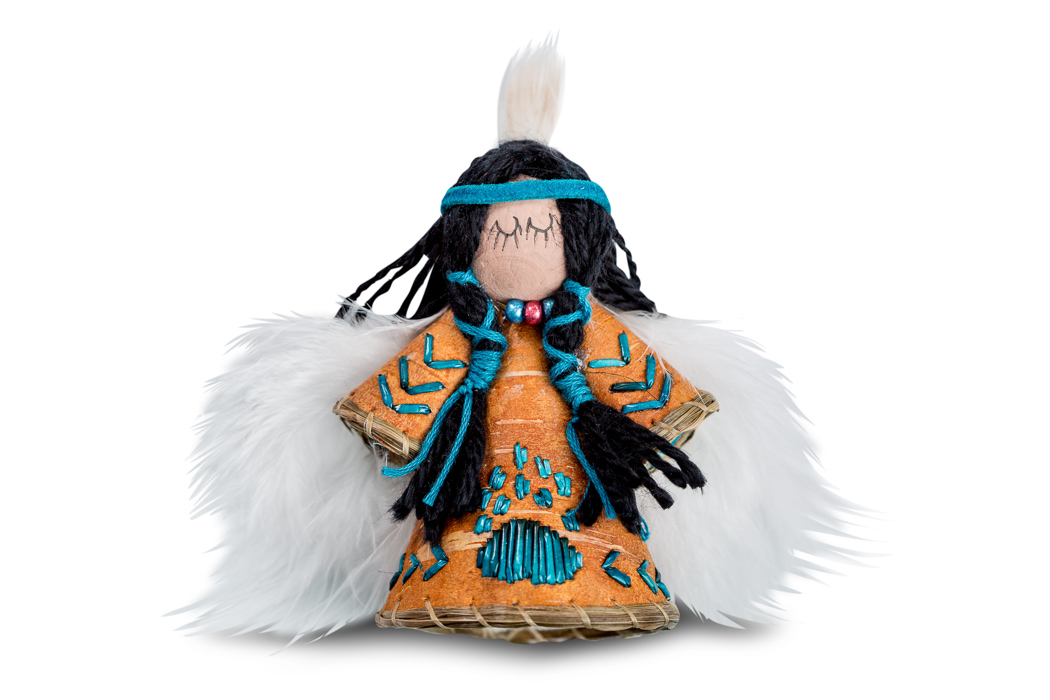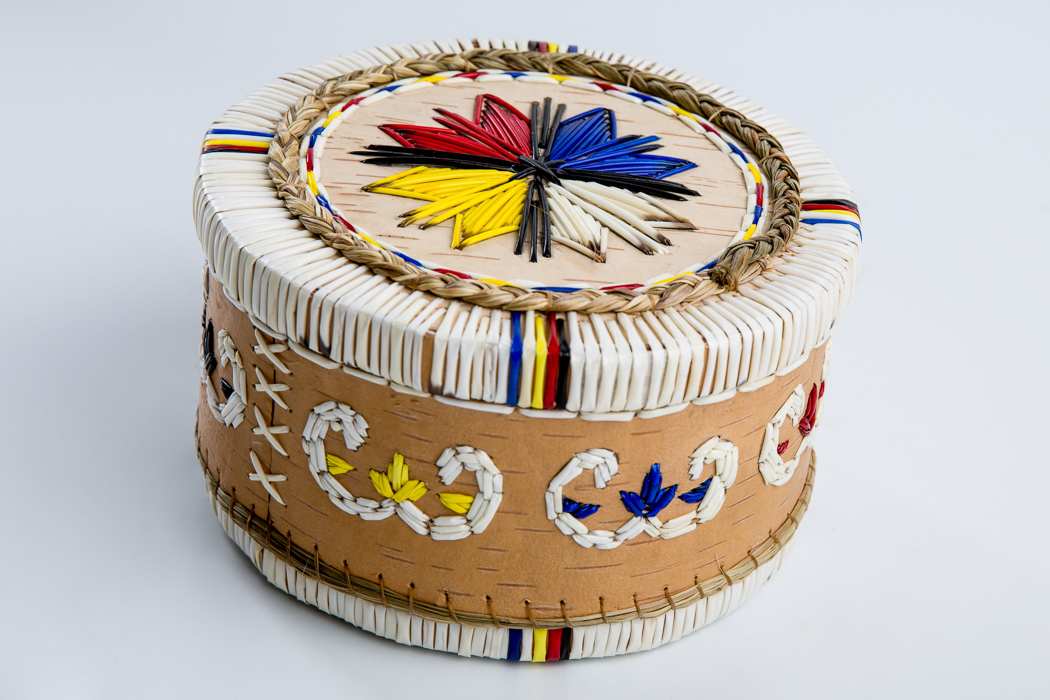
Employment & economic development
NSNWA has created partnerships with private and public sector employers who are committed to employing Indigenous women. These partnerships provide Indigenous women with the appropriate education, training and mentorships to secure meaningful employment in a demand driven skill sector.
INDIGENOUS SKILLS AND EMPLOYMENT TRAINING PROGRAM (ISETS)
Through the Indigenous Skills and Employment Training Program (ISET) the Nova Scotia Native Women’s Association & Native Women’s Association of Canada provides employment and training support services to Indigenous Women and gender-diverse individuals across the province. Our employment and training services provide Indigenous women with the opportunity to gain meaningful and sustainable work by meeting current labour market demands.
ELIGIBLE CLIENTELE
Eligible clientele are Indigenous women, transgender, two-spirited and gender diverse (First Nation, Inuit and Metis) who are 15 years of age or older. Individuals seeking funding support must be unemployed, under-employed or able to demonstrate an immediate risk of being unemployed.
PROGRAM DESCRIPTIONS
CLIENT
Individual Training Purchases (ITP)
The Individual Training Purchases assists clients in obtaining the skills they need for employment. The ITP provides clients with financial assistance to help pay for the cost of skills training courses, programs, living allowance, supplies, and childcare.
Self-Employment Benefits (SEB)
The Self-Employment Benefits (SEB) program provides financial support to clients pursing self- employment. Consideration is made for expenses related to start-up cost, including the development of business plans.
GROUP TRAINING / SPECIAL PROJECTS
The group training / special projects provide funding to support customized training opportunities for employment skills and work experience through community based projects, focused on community needs.
EMPLOYER
On the Job Training
Creating partnerships with employers to offer temporary funding as an incentive to off-set the cost of a client’s wages. This will allow employers to hire clients for a unique on the job work experience tailored to the individual client’s skill set, education and previous work experience. This offers clients a paid work experience to improve their long-term employment prospects.

Sexualized Violence Prevention Program
Program Mandate:
To mobilize and build stronger community responses to support victims/survivors of sexual violence and to encourage citizens of all ages to take a role in preventing and responding to sexual violence, in a trauma and culturally appropriate way.
The Sexualized Violence Prevention Coordinator works collaboratively with Nova Scotia Mi’kmaq communities, organizations, services and partners to create and implement a Nova Scotia L’nu Sexualized Violence Prevention Strategy, Nova Scotia Human Trafficking Prevention and Support Strategy. Create and conduct workshops and training sessions identified by the program steering committee. Assist NSNWA local chapter leaders in mobilizing their respective communities to be more effective in addressing sexualized violence and support victims/survivors. Work with vulnerable at-risk populations in NS to prevent sexualized violence.
Program Outcomes:
- Citizens are more knowledgeable, skilled, connected and engaged on the issue of sexual violence
- Communities have a better understanding of sexual-violence related trauma
- Increased public awareness of available services, supports, resources and tools for preventing and responding to sexual violence
- Increased public awareness of sexual violence and its impact, including dispelling myths and stereotypes
- Improved ability of community members and service providers to respond to disclosures in a trauma-informed and culturally appropriate way.

family Information Liaison Unit (filu)
The FILU Coordinator is Responsible for:
• Visiting family members of the MMIWG and make referrals to traditional healing if they need/want
• Attend meetings concerning MMIWG, federal reporting and stats
• Organize family gatherings for MMIWG family members
• Offer Grief/Trauma workshops and follow-up with families after events
• Distribute information packages to policing services in NS
• Introduce the FILU program to police and other agencies, make myself available for families when they receive information about a loved one’s case.
Program Outcomes:
- Family visits are well received
- Planning a yearly MMIWG family gathering with a trauma/grief workshop offered
- Support family members when information was updated
- Traditional healing services
- Meetings and training associated with MMIWG are attended by the coordinator.

Tripartite
The Tripartite Forum was formed in 1997 as a partnership between the Nova Scotia Mi’kmaq, the Province of Nova Scotia and the Government of Canada, to strengthen relationships and resolve issues of mutual concern affecting Mi’kmaw communities.
Under this agreement the Nova Scotia Native Women’s Association has a Tripartite Liaison to represent the association at the steering level. The Liaison is a member of the Tripartite Steering Committee, whose purpose is to provide organizational direction and operational support to the Tripartite Forum. The Liaison will ensure representation of the Nova Scotia Native Women’s Association and the work that the Association provides at all levels of the Forum.
The Forum is comprised of the following committee levels – Executive, Officials, Steering and Working Committees. Each level has representation from each of the three parties: The Nova Scotia Mi’kmaq, The Province of Nova Scotia and The Government of Canada. All parties agree to work together without prejudice and by consensus to discuss and resolve issues of mutual concern. The NSNWA has a representative assigned to each committee.
The NSNWA Liaison works closely with the NSNWA Representatives assigned to each of the seven working committee and Executive and Official’s Committees to ensure that the issues of the NSNWA are heard and find resolution.
Each committee have a specific role on operations of the Forum. As described in the Tripartite Forum Terms of Reference:
The Executive Committee is the highest level in the decision-making process in the Tripartite Forum. Final decisions are made at this level with consensus from all members. Decisions can overrule present policy, change future policy, initiate, and provide input to legislative change if necessary. All Tripartite committees require approval from the Executive Committee in their formation, mandate, and resolutions.
The Officials Committee receives options and recommendations from the Working Committees and offers decisions within its authority and policy. The Officials Committee approves the Working Committees’ mandates and provides direction as stated by the Executive Committee.
The purpose of the Steering Committee is to focus on the overall relationship between the Mi’kmaq of Nova Scotia and the provincial and federal governments as it relates to issues being discussed within each of the Tripartite Forum’s Working Committees.
The mandate of the Steering Committee shall be to provide organizational and operational support for the Tripartite Forum and to provide the three parties with a mechanism to resolve organizational and process issues related to the Forum.
The Tripartite Forum includes 7 Working Tables. Each table discusses issues, develops solutions, and suggests actions to resolve issues of mutual concern for Nova Scotia Mi’kmaq. Issues are identified through research and community concerns.
The NSNWA representation at each of the Tripartite Committees:
- Executive Committee: Annie Bernard-Daisley, NSNWA President
- Officials Committee: Karen Pictou, NSNWA Executive Director
- Steering Committee: Dawn McDonald, Tripartite Liaison
- The Working Committees and the representatives:
- Education: Justine Maloney, Employment & Economic Development Coordinator
- Economic Development: Justine Maloney, Employment & Economic Development Coordinator
- Culture and Heritage: Marie Sack, FILU Coordinator
- Sports and Recreation: Ellen Marshall, Event Manager/PR Officer
- Health: Karen Bernard. SSVP Coordinator
- Social: Carley Gloade, Human Resource Manager/Executive Assistant
- Justice: Mary Jane Abram, NSNWA Legal Advisor
In 2006, the St. Mary’s University Business Development Centre, did a review of the Tripartite Forum. This was a request made at the 2005 Annual General Assembly. The purpose was to identify how the Forum could improve operations and effectiveness of the work being done. The Tripartite Project Fund was established as part of the recommendations from this review. The goal was to provide resources for projects that do not fit within an existing program; for which there is no other funding available; or to leverage other funding. The Fund is jointly funded by Nova Scotia (Office of Aboriginal Affairs) and Canada (Aboriginal Affairs and Northern Development Canada) and administered and managed by the Tripartite Forum Secretariat.
For more information on the Tripartite Forum, Project Fund and roles of the committees along with Committee Workplans and membership please visit www.tripartiteforum.com.